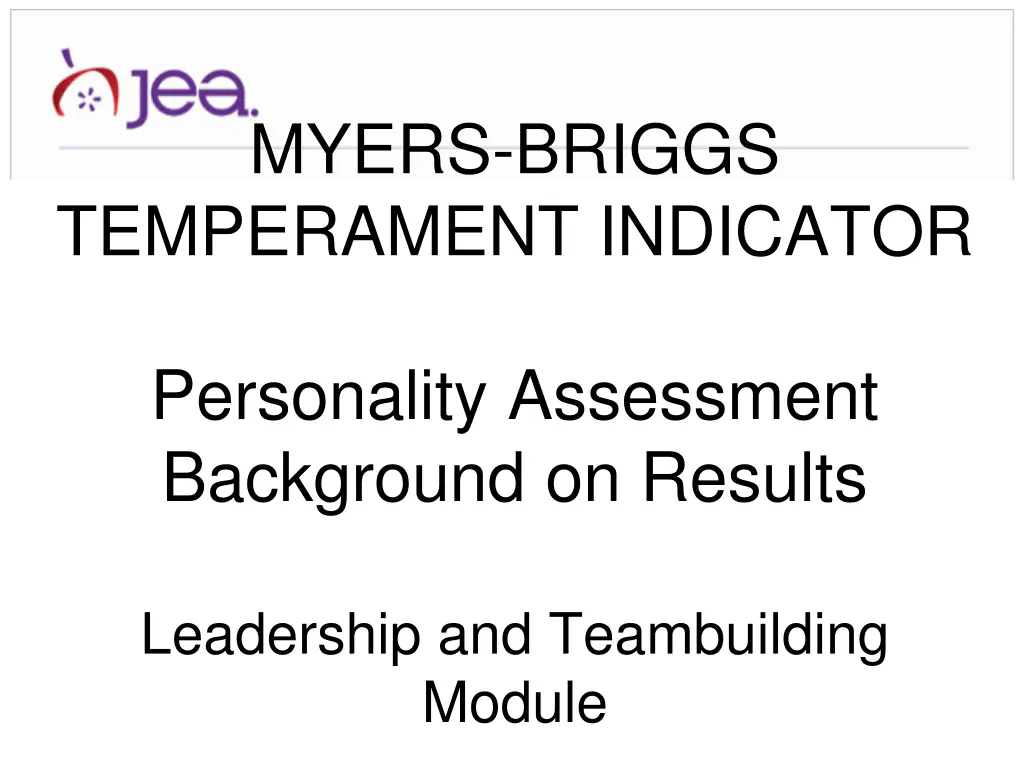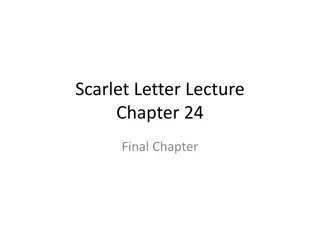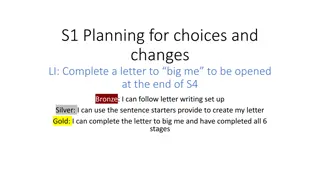
Understanding Myers-Briggs Temperament Indicator Personality Assessment
Explore the eight functions of the MBTI, introversion, extraversion, sensing, intuition, thinking, feeling, perceiving, and judging, to decode personality types such as ISFJ. Learn how introverts gain energy from thoughts, extroverts from people, sensates focus on the present, and intuitives on possibilities.
Download Presentation

Please find below an Image/Link to download the presentation.
The content on the website is provided AS IS for your information and personal use only. It may not be sold, licensed, or shared on other websites without obtaining consent from the author. If you encounter any issues during the download, it is possible that the publisher has removed the file from their server.
You are allowed to download the files provided on this website for personal or commercial use, subject to the condition that they are used lawfully. All files are the property of their respective owners.
The content on the website is provided AS IS for your information and personal use only. It may not be sold, licensed, or shared on other websites without obtaining consent from the author.
E N D
Presentation Transcript
MYERS-BRIGGS TEMPERAMENT INDICATOR Personality Assessment Background on Results Leadership and Teambuilding Module
There are eight functions that are contained in the MBTI. These set up four dichotomies, which aim to derive an individual's personality type (one of sixteen). The eight functions are:
I ntroversion E xtroversion S ensing i N tuitive T hinking F eeling P ercieving J udging
Each of the eight functions is typically referred to by its first letter (with the exception of iNtuitive, as I had already been taken). Thus, a personality type would be referred to by a four-letter abbreviation (e.g. ISFJ).
Introverts gain their energy from thoughts, things and ideas. They tend to use up a great deal of energy being around people, causing them to often avoid large crowds.
Extroverts gain energy from people. They find that being around people causes them to feel happier and more lively. Consequently, these people tend to enjoy parties and dances more so than an introvert would.
Sensates gain information in concrete patterns. This type is not so much concerned with fantasies and the future as with the practical and the present. They are the most likely to bring iNtuitives back down to earth and have them think realistically.
i N tuitive (the I was used already for introversion)
iNtuitives do not necessarily need a concrete idea expressed to them for them to gain information. They are often intrigued by theory, especially personality theory. Even though there are only about 25% of the world who are iNtuitives, they make up the majority of the people who discuss personality type, as many Sensates are uninterested.
Thinkers are more likely to embrace logic and reason when making a decision. They are not inclined to trust their gut feeling, and sometimes can overlook the repercussions of a decision on another person's feelings. They (especially NT's) often make great scientists and often have a curiosity for the physical world.
Feelers tend to trust their gut feeling when making a decision. They also can become very aware of the emotional repercussions of a decision and are very capable of feeling empathy for someone in distress.
Perceivers love to keep their options open. They are always looking for the best decision, and are not drawn to making decisions quickly. Some say that Perceivers tend to be disorganized, but there are many exceptions.
Judgers have a need for closure. Decisions have to be made, or the Judger is uncomfortable. They tend to lead very scheduled lives, and often have a difficult time when outside forces impede upon their schedule. Many say that Judgers are very organized, but there are many exceptions.






















